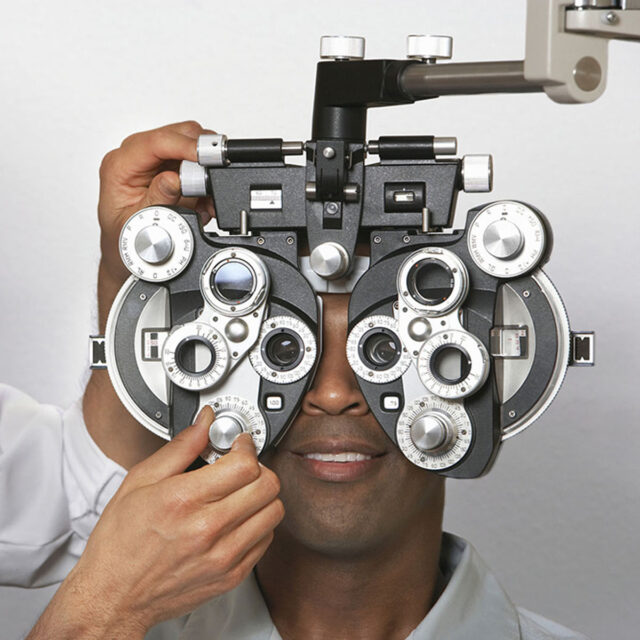Image by Helmut Strasil from Pixabay
What is diplopia of the eye? It is what we commonly call double vision, a condition characterized by seeing two images when looking at an object.
What causes double vision? Several conditions may cause diplopia. In children, a study found that nonparalytic strabismus is the most common cause of double vision in nearly half of the study’s subjects.
Thus, if a child complains of double vision, proceed to an eye center, preferably a strabismus surgery Dubai specialist, to get a diagnosis.
Types of Diplopia
There are two types of diplopia, and the type you have will help your eye doctor diagnose the specific cause of your double vision.
1. Monocular Double Vision
This is the common variant of diplopia, characterized by double vision in one eye.
“How do I know if my double vision is monocular?” you may very well ask. Cover one eye and look at something using only one eye. Do this with both eyes, closing one and keeping the other eye open.
If you see double with one eye — people with monocular diplopia often describe seeing a shadowy outline — you may have monocular diplopia.
Note, however, that monocular double vision in both eyes is possible. In this case, you see double regardless of which eye you use to see.
Is monocular double vision dangerous? Rest assured, it’s not, even when both eyes have monocular double vision, as the cause is unlikely to be neurological.
2. Binocular Double Vision
Binocular diplopia is a type of double vision that occurs only when both eyes are open. In other words, you don’t see double when you close or cover one eye.
Double vision caused by strabismus typically presents as binocular diplopia. Strabismus is eye muscle or ocular misalignment — i.e., the eyes are misaligned. Therefore, if you cover the problematic eye, the double vision disappears.
Binocular diplopia may be horizontal or vertical. In horizontal diplopia, the two images appear side by side, while they appear vertically — one appears on top of the other — in vertical diplopia.
Side note: What is transient diplopia? It’s a term to describe temporary double vision, which is typically the case for diplopia. However, this doesn’t mean you should leave it undiagnosed and wait for it to disappear.
Some serious underlying conditions can cause intermittent or transient double vision. Going to a doctor for a diagnosis will increase your chances of preventing potentially grave consequences.
Common Causes of Monocular Diplopia
Eye problems such as the following often cause monocular diplopia.
1. Corneal Damage
The cornea focuses light onto the retina. If one eye’s cornea is damaged and uneven, you may see double in that eye.
The unevenness in the cornea can be a result of many things, including:
- Keratoconus, an eye disease characterized by a structural weakness that causes the cornea to bulge outward and take on a conical shape
- Corneal scarring, which may be due to major abrasions (e.g., burns, lacerations, deep scratches) or infections (syphilis, shingles, herpes)
- Severe eye dryness, which can induce inflammation that can eventually lead to abrasions and corneal sores (ultimately leading to corneal scarring)
2. Lens Damage
The lens also helps focus light onto the retina. Thus, damage to it can lead to double vision.
Cataracts, or the clouding of the lens, are some of the most common causes of lens damage.
Common Causes of Binocular Diplopia
The following are the common causes of binocular diplopia or double vision present when both eyes are open.
1. Strabismus
Strabismus is a condition characterized by misaligned eyes. It may be caused by eye muscle weakness that will not let one eye move in sync with the other.
Strabismus can be classified according to the direction in which the misaligned eye is turned.
- Esotropia: The eye turns inward.
- Exotropia: The eye turns outward.
- Hypertropia: The eye turns upward.
- Hypotropia: The eye turns downward.
Typically, you see double when you look towards the direction the misaligned eye is turned.
2. Nerve Issues or Damage
The nerves carry the information from the eyes to the brain. Thus, issues with the concerned nerves can cause double vision.
Multiple sclerosis and Guillain-Barre syndrome are conditions that can lead to double vision. Diabetes, too, can lead to nerve damage that weakens eye muscles and thus causes double vision.
3. Brain Issues
Any problems with the brain can lead to double vision since the brain processes the information the eyes provide. Thus, aneurysms, strokes, brain trauma, brain tumors, and migraine can lead to binocular diplopia.
What Is the Treatment for Diplopia?
The treatment depends on the cause. Treating double vision means addressing the medical condition that causes the diplopia.
Generally speaking, the following are the standard treatment methods for diplopia.
How Is Monocular Double Vision Treated?
If the diplopia is due to corneal damage, treatment can be done through using special lenses, corneal collagen cross-linking, and surgery (penetrating keratoplasty and deep interior lamellar keratoplasty).
Cataracts, meanwhile, typically call for cataract surgery.
How Is Binocular Double Vision Treated?
If strabismus due to an untreated refractive error is the cause, treatment means correcting the refractive error. The eye doctor may prescribe eyeglasses, contact lenses and maybe even laser surgery. Strabismus treatment (and thus diplopia treatments) may also entail prism lenses, eye exercises, medications, and even eye muscle surgery.
Likewise, when diplopia is due to multiple sclerosis, Guillain-Barre syndrome, diabetes, stroke, aneurysm, head trauma, tumors, and migraine, treating these conditions may correct the double vision.
Do You or Your Child Have Diplopia?
Diplopia or double vision can be caused by a benign or a serious underlying medical condition. Monocular double vision is typically caused by eye problems, while binocular double vision may or may not be due to neurological issues.
In children, diplopia is often due to strabismus. Therefore, if your child has double vision, we urge you to visit an eye specialist for kids to get a diagnosis. Your doctor may recommend special eyeglasses for correction or surgery if the situation indicates eye muscle repair.
Gulf Eye Doctors is a leading eye center in Dubai. Contact us if you or your child has diplopia or any other vision problem.








